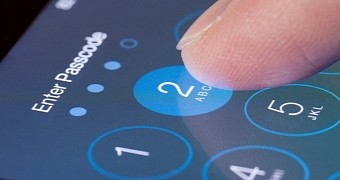A Canadian landing at Halifax Stanfield International Airport refused to give the password for unlocking his smartphone during a security check and was charged with obstructing border officials as a result.
38-year-old Alain Philippon arrived from the Dominican Republic on Monday when he was selected by the border services for a more thorough search. These events happen either randomly or when the officers at the airport notice something that could be deemed suspicious in the behavior of the traveler.
Charge to be contested in court
The reason for picking Philippon is unclear, but airport officers receive training “in examination, investigative and questioning techniques” and they “look for indicators of deception and use a risk management approach in determining which goods may warrant a closer look,” a spokesperson from Canada Border Services Agency (CBSA) told CBC.
The non-complying passenger is now out on bail and runs the risk of receiving a fine between CAD 1,000 (USD 800 / EUR 730) and CAD 25,000 (USD 20,000 / EUR 18,250), as well as spending one year in jail, according to section 153.1 (b) of the Customs Act.
Philippon said that he would challenge the charge in court on account that the information on his phone is personal and should not be exposed in lack of legal grounds.
Powering on the device is enough on most airports
It appears that border officials in Canada have extended search powers that touch on any items a passenger introduces in the country, including personal electronic devices.
Airports in other countries require passengers to turn on their gadgets in order to prove that they are functional and that illegal products are not harbored in their cases.
However, access to the data on them, much less asking for the password protecting them, is not required for the traveler to pass such a security check. Seeing the system boot up and load the password screen is sufficient to prove that all the device’s internals are available.
Revealing the password that unlocks an electronic device to a border officer has not been tested in a Canadian court before.

 14 DAY TRIAL //
14 DAY TRIAL //